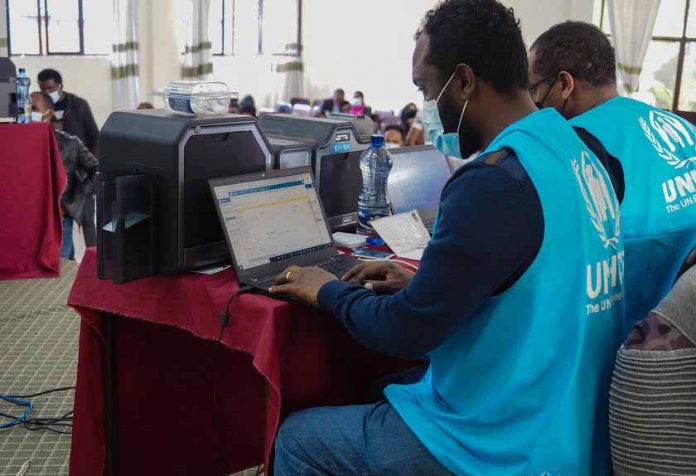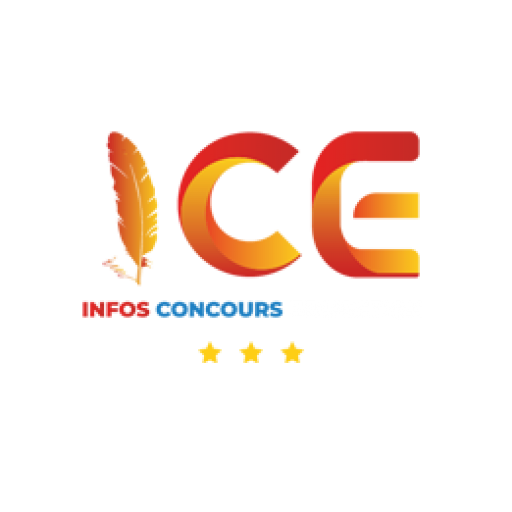The World Health Organization (WHO) is currently seeking a Health Promotion and Social Determinants Officer.
- Grade: NO-C
- Type of Contract: Fixed-term appointment
- Duration of Contract (Years, Months, Days): 2 Years
- Job Posting: May 8, 2024, 12:18:52 PM
- Closing Date: May 21, 2024, 11:59:00 PM
- Primary Location: Yaounde, Cameroon
- Organization: AF_CMR Cameroon
- Schedule: Full-time
OBJECTIVES OF THE PROGRAMME
- Strengthening Health Systems and Primary Healthcare:
- Enhance health systems to address prevention, early detection, and appropriate management of communicable and noncommunicable diseases.
- Promote people-centered primary healthcare and community engagement to improve universal health coverage.
- Reducing Risk Factors and Addressing Social Determinants:
- Support the development of strategies and interventions to reduce risk factors for diseases and underlying social determinants.
- Foster the creation of health-supportive environments through intersectoral action plans.
- Strengthening Institutional Capacity:
- Enhance institutional capacity to develop health promotion policies and implement effective programs.
- Improve response capabilities for prevention and control of public health events.
- Advancing Research and Best Practices:
- Promote quantitative and qualitative research in health promotion and determinants of health.
- Document experiences, best practices, and disseminate research results.
- Advocacy and Coordination:
- Advocate for the implementation of health promotion interventions within the health sector and related sectors.
- Apply the “Health in all policies” approach and intersectoral action strategies.
- Implement health education interventions and other relevant approaches.
- Strengthening Partnerships:
- Foster partnerships among health, development, and other stakeholders to promote healthy environments.
- Support the development and implementation of strategic actions for health promotion and disease prevention.
- Collaborate with partners to address public health emergencies and issues.
- Promoting Innovation and Collaboration:
- Establish partnerships and national networks for innovative health promotion actions.
- Engage stakeholders and non-state actors to control and reduce risk factors for diseases.
- Building Member States’ Capacity:
- Enhance the capacity of Member States to utilize health promotion strategies.
- Address determinants of health and empower communities through integrated action for improved health.
DESCRIPTION OF DUTIES
The selected candidate will be responsible for the following tasks:
- Establish and Foster Partnerships:
- Develop and maintain strong relationships with national and state authorities, as well as other stakeholders.
- Promote health promotion initiatives through policies, strategies, legislation, regulations, and fiscal interventions.
- Support National Plans:
- Collaborate with the country in developing and implementing comprehensive national plans.
- Focus on the prevention and control of both communicable and noncommunicable diseases.
- Policy Development and Review:
- Provide expert advice on the development and review of national policies, programs, and structures for health promotion.
- Ensure alignment with international standards and best practices.
- Strategy Implementation:
- Collaborate with national authorities and multi-sectoral partners to implement and evaluate national strategies, policies, and plans for health promotion programs.
- Addressing Risk Factors:
- Contribute to the strengthening of technical support for reducing risk factors associated with noncommunicable diseases and underlying social determinants.
- Work towards creating supportive environments for health and implementing relevant interventions outlined in the national multisectoral action plan.
- Technical Guidance and Support:
- Provide technical advice and support to the government, guided by the senior management of the World Health Organization (WHO) Country Office.
- Focus on strengthening health promotion capacity and improving prevention, early detection, and management of community-based interventions for both communicable and noncommunicable diseases.
Promoting Health and Strengthening Partnerships in Noncommunicable Diseases (NCDs)
The main responsibilities of the role include:
- Health Promotion and Healthy Settings:
- Advocate for health promotion approaches in all policies.
- Provide technical support for the development of healthy cities and other settings.
- Promote healthy eating and physical activity initiatives.
- Collaboration and Surveillance:
- Collaborate with international and national partners, alongside the IPO Officer, to enhance surveillance, monitoring, and evaluation of NCDs and their risk factors.
- Coordinate data compilation and validation for the National NCD Capacity Survey.
- Multisectoral Action Plan:
- Coordinate with relevant partners to strengthen the implementation of the surveillance, monitoring, and research components of the National Multisectoral Action Plan on NCDs.
- Community Engagement and Health Inequities:
- Support priority health programs to enhance community engagement and social mobilization.
- Facilitate behavior change communication and multisectoral actions to address health inequities.
- Empowerment and Participation:
- Promote individual, community, and societal participation in health actions through empowerment.
- Technical Support and Guidelines:
- Provide technical support for the application of health education, behavioral change communication, social mobilization, and advocacy methods in health programs.
- Support the development of guidelines to promote the use of community-based approaches and affordable strategies for quality service delivery, particularly in primary and secondary prevention and disease management.
- Policy Development and Evaluation:
- Assist the Ministry of Health and its partners in the development, implementation, and evaluation of NCD policies.
By fulfilling these responsibilities, the incumbent will contribute to the promotion of health, the prevention of NCDs, and the improvement of overall population health outcomes.
- Essential: A university degree in health, public health, social sciences or a related field from a recognized institution.
- Specialization in areas such as health education, health communication, sociology/medical anthropology, teaching, or population studies is preferred.
- Good knowledge of health promotion theories, determinants of health, and epidemiology or social epidemiology training.
Experience
- Essential: Minimum of 5 years of experience in public health and disease control program management.
- Experience working with national/international organizations involved in health promotion, public health, or development.
Skills
- Alignment with the core values of the World Health Organization.
- In-depth knowledge of public health policies, strategies, and guidelines, including communicable and noncommunicable diseases, neglected tropical diseases, and WHO’s risk communication and community engagement guidance.
- Familiarity with NCD risk factors, including the prevention of visual and auditory disorders and the utilization of mobile health technologies.
- Good understanding of the country’s health priorities and needs.
- Proficiency in preventing communicable disease outbreaks and promoting health protection through community engagement and multisectoral actions.
- Strong analytical skills and a comprehensive understanding of the sociopolitical, economic, and policy environment of the country.
- Proficient in providing technical and policy advice based on evidence.
- Demonstrated leadership, coordination, and supervisory skills, with the ability to work effectively in national and international teams, share information and data, and deliver oral and written presentations on technical issues.
- Excellent relationship-building and networking abilities, particularly with national authorities and stakeholders in relevant sectors.
Understanding of Context and Adaptability:
- Ability to understand potential motivators within the national context and adapt to new approaches in an increasingly complex environment.
Modern Management Skills and Effective Communication:
- Proficient in modern management skills, including planning and evaluation.
- Ability to convey information and present options in a structured and credible manner.
- Strong verbal and written communication skills.
Technical Expertise and Collaboration:
- Possesses technical expertise in public health.
- Capable of working effectively with colleagues at sub-national, national, and international levels.
- Demonstrates leadership, collaboration, innovation, analytical thinking, and problem-solving skills.
Understanding of Participatory Learning and Development:
- Excellent understanding of participatory learning and development principles.
- Knowledgeable in strategic data and information, including research study design.
Policy Dialogue, Advocacy, and Communication:
- Ability to lead policy dialogue and engage in advocacy and communication with partners regarding health promotion, noncommunicable diseases, and their risk factors.
WHO Competencies:
- Demonstrates teamwork skills.
- Respects and promotes individual and cultural differences.
- Exhibits effective communication abilities.
- Possesses self-awareness and self-management skills.
- Adapts to a changing environment.
- Creates an empowering and motivating work environment.
Language Skills:
- Essential: Intermediate knowledge of English. Expert knowledge of French.
- Desirable: Intermediate knowledge of local languages. (Language requirements are interchangeable.)
Remuneration:
- The remuneration package includes an annual base salary starting at XAF 31,435,000 (subject to mandatory deductions for pension contributions and health insurance, as applicable) and 30 days of annual leave.
ADDITIONAL INFORMATION
This vacancy notice may be used to fill other similar positions at the same grade level.
Only candidates under serious consideration will be contacted.
A written test and/or an asynchronous video assessment may be used as a form of screening.
If your application is selected for an interview, you will be required to provide scanned copies of the degree(s)/diploma(s)/certificate(s) required for this position in advance. Please note that WHO only accepts higher educational qualifications obtained from institutions accredited/recognized in the World Higher Education Database (WHED), which is a list maintained and updated by the International Association of Universities (IAU)/United Nations Educational, Scientific and Cultural Organization (UNESCO). You can access the list through the following link: http://www.whed.net/. Please be aware that certain professional certificates may not appear in the WHED and will require individual review.
According to Article 101, Paragraph 3, of the United Nations Charter, the primary consideration in the employment of staff is to ensure the highest standards of efficiency, competence, and integrity. The importance of recruiting staff from a diverse range of geographical backgrounds will also be taken into account.
Any appointment or extension of appointment is subject to WHO Staff Regulations, Staff Rules, and Manual.
WHO is dedicated to fostering a diverse and inclusive environment based on mutual respect. The organization recruits and employs staff without regard to disability status, sex, gender identity, sexual orientation, language, race, marital status, religion, cultural background, ethnicity, socio-economic background, or any other personal characteristics.
WHO is committed to achieving gender parity and geographical diversity among its staff. Women, persons with disabilities, and nationals of unrepresented and underrepresented Member States (https://www.who.int/careers/diversity-equity-and-inclusion) are strongly encouraged to apply.
Individuals with disabilities can request reasonable accommodations to facilitate their participation in the recruitment process. Requests for reasonable accommodation should be sent via email to reasonableaccommodation@who.int.
Maintaining an impeccable record of integrity and upholding professional ethical standards is essential. WHO takes pride in having a workforce that adheres to the highest ethical and professional standards and is committed to putting the WHO Values Charter into practice.
The World Health Organization (WHO) maintains a strict policy of zero tolerance towards sexual exploitation and abuse (SEA), sexual harassment, and other forms of abusive conduct such as discrimination, abuse of authority, and harassment. All members of the WHO workforce are responsible for promoting a safe and respectful workplace and are required to report any actual or suspected cases of SEA, sexual harassment, or other forms of abusive conduct to WHO. In order to ensure that individuals with a verified history of SEA, sexual harassment, or other forms of abusive conduct are not employed by the organization, WHO will conduct background checks on final candidates.
WHO maintains a smoke-free environment and does not hire individuals who smoke or use any form of tobacco.
For information on WHO’s operations, please visit: http://www.who.int.
WHO also offers a wide range of benefits to its staff, including parental leave and flexible work arrangements to promote a healthy work-life balance and to allow all staff members to fully express and develop their talents.
The mandatory retirement age for staff appointments is 65 years. For external applicants, only those who are expected to complete the full term of appointment will typically be considered.
Please note that WHO’s contracts are contingent upon members of the workforce confirming that they have been vaccinated as required by WHO before undertaking a WHO assignment, unless a medical condition prevents vaccination, as certified by the WHO Staff Health and Wellbeing Services (SHW). The successful candidate will be required to provide relevant evidence regarding this condition. An updated vaccination card must be shared with WHO’s medical service during the medical clearance process. It is important to be aware that certain countries may require proof of specific vaccinations for entry or exit. For instance, many countries require official proof or certification of yellow fever vaccination. Country-specific vaccine recommendations can be found on the WHO international travel and Staff Health and Wellbeing website. For any queries related to vaccination, please directly contact SHW at shws@who.int.
This position is open to nationals of the country where the duty station is located, as it is a National Professional Officer position. Applications from individuals who are not nationals of this country will not be considered.
If you are experiencing issues with the website not displaying properly, please try the following troubleshooting steps:
- Ensure that you have the latest version of your browser installed (Chrome, Edge, or Firefox).
- Clear your browser history and open the website in a new browser, rather than just opening a new tab within the same browser.
- Alternatively, try accessing the website using the Mozilla Firefox browser or using a different device.
For detailed instructions on how to complete job applications, please click on this link: Instructions for candidates.
N.B: Ne payez aucun frais pour obtenir un emploi





